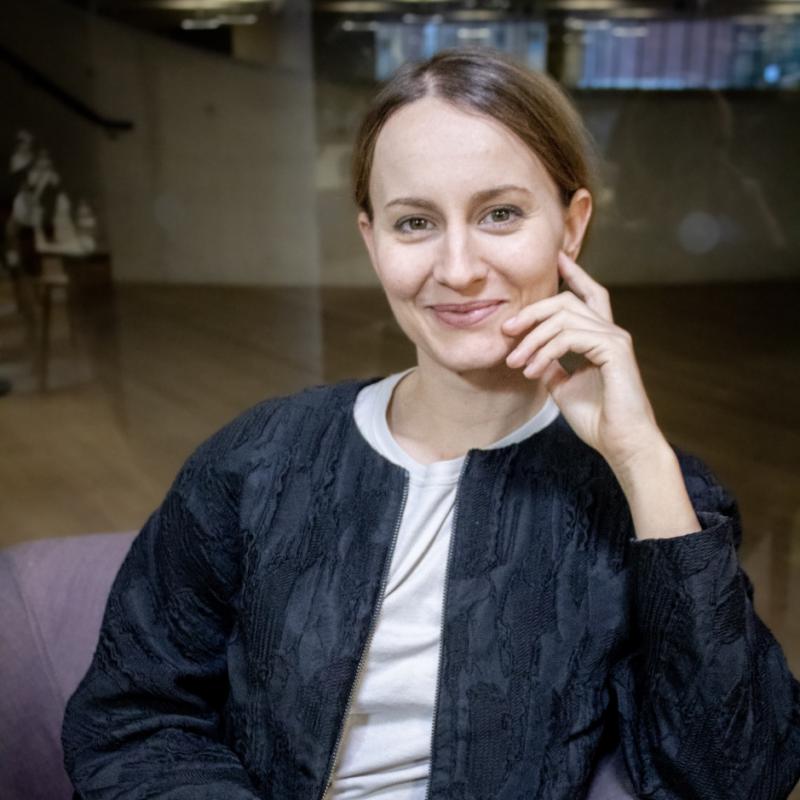Breadcrumb
Fiammetta Dedé Brugo came to the Master of Public Policy (MPP) with a range of international work and study experience. From studying and carrying out academic research at the University of California, Berkeley, to working with the United Nations in Ecuador and Colombia, Fiammetta’s experiences taught her that global perspectives strengthen the process of finding solutions to complex problems. The Blavatnik School of Government’s diverse, international environment was therefore her first choice for studying public policy.
“Other master’s programs in public administration and public policy in Europe and the US often focus on studying policy issues from a more singular perspective. My international work experience taught me that great ideas and solutions come from diversity. My time at the Blavatnik School has proven that this is true.”
From social psychology research to public policy action
As a graduate of cognitive applied psychology with a focus on political and social psychology, Fiammetta has a longstanding interest in conflict and cooperation, and how citizens form relations with the state. Yet her passion for social justice dates back to her upbringing.
“I grew up in Bologna, Italy which is a very political city. My father was a businessman and trade unionist and my mother was a social psychologist working with the social services in the city. Growing up social justice, in all its different dimensions, was always a topic of conversation at the dinner table.”
While at Berkeley, Fiammetta was elected a house manager at one of the university’s student cooperatives – a system based on communal living and oriented towards civic engagement. This experience was formative in re-engaging her in political activism and building her interest in a public service career. Thus, after eight months of working in social psychology and neuroscience research at the Karolinska Institutet in Sweden, Fiammetta decided to pivot her professional work into more direct social action. It was at this point that she joined the UN Women in Ecuador.
Fiammetta arrived in Ecuador during a time of political change. As Ecuador transitioned from the government of Rafael Correa to Lenin Moreno, Fiammetta’s team provided assistance to the new leadership in designing policies addressing gender issues in the employment and economic empowerment domains. In 2018, she moved to Putumayo in the Amazon region of Colombia, where she was first deployed as a field officer with the UN political Mission that oversees the implementation of the Peace Agreement in that region.
“Working with local communities and administrations in Colombia and Ecuador provided invaluable insight into creating social change. However, these experiences also reinforced for me that many of these issues are structural in nature, and also shaped by global institutions such as the European Union. This also intersected with my goal to move closer to home and to have an impact on my home country of Italy, in building the next phase of my personal and professional journey.”
What makes the Blavatnik School of Government at Oxford different
With aspirations to pursue a policy career in Europe, she applied to the Blavatnik School of Government. Though she was excited to receive an offer to study at one of the world’s best universities and to be offered a department scholarship on her tuition fees, she also had some doubts. Coming from years of work with communities and real-world policy making on the ground, the contrast of transitioning back into an academic environment, and particularly in such a reputable institution, caused her to feel some doubts. Looking back, Fiammetta need not have worried.
“Beyond the world-renowned faculty, one of the aspects I liked the most about the Blavatnik School of Government is that it places much importance on succeeding as a team not as an individual. It encourages collaboration and mutual support, yet still fosters a highly professional real-world like environment, which made the transition from work very smooth. This atmosphere made me both grow professionally and helped me become a more resilient and self-confident person.”
Joining Oxford’s community to make a tangible impact at home and in Europe
Having now spent the year exploring her personal policy interests in climate change, social market economy and digital policies through both the academic curriculum and doing policy research with faculty, Fiammetta has completed her summer project. Supporting the Montenegrin Ministry of European Affairs in the Accession process to the EU, she conducted analysis and provided policy recommendations on the policy chapter for the Green Transition.
Though Fiammetta envisions returning to national policy-making in Italy later in her career, her sights are currently set on the fast-paced, diverse and innovative environment of the EU.
“My experience both in the MPP and from my work experience has made me really value multidisciplinary and diverse ways of thinking about the policy challenges of our time. I believe in the European Union potential to catalyse change. At this stage in my career the intellectually vibrant environment of Brussels is where I think I can further capitalise the most on my experiences at Oxford to contribute toward the causes I care so much about.”
July 2022.

